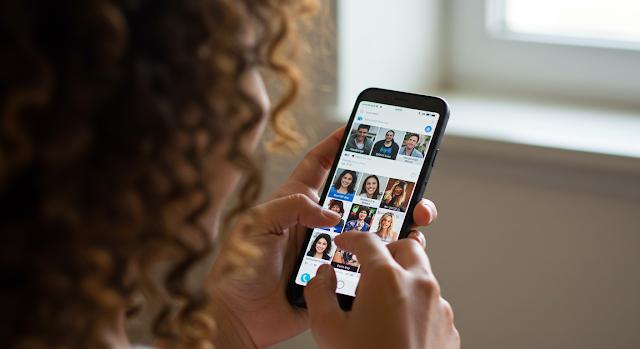In today's hyper-connected world, social media platforms like Instagram, TikTok, and Snapchat are more than just ways to stay in touch—they’ve become powerful forces shaping how people view themselves and others. While these platforms offer creative expression and community, they can also have a significant impact on body image and mental health, especially among teens and young adults.
This article explores how social media influences self-esteem and body perception, and offers practical strategies for developing a healthier, more positive digital experience.
How Social Media Shapes Body Image
The constant stream of curated, filtered, and often unrealistic images can lead users to compare themselves to others, triggering feelings of inadequacy and poor self-worth. This is especially true for younger audiences who are still developing their identity.
Common ways social media affects body image:
-
Highlight reels: People tend to post only the best parts of their lives, creating unrealistic standards.
-
Filters and editing apps: These tools can warp facial features and body proportions, setting unattainable beauty goals.
-
Influencer culture: Endorsements of "perfect" diets, fitness routines, or cosmetic procedures can reinforce the idea that appearance equals value.
Over time, this exposure can contribute to body dissatisfaction, low self-esteem, anxiety, and even eating disorders.
The Mental Health Consequences
Numerous studies have linked excessive social media use to poor mental health outcomes, including:
-
Depression
-
Anxiety
-
Low self-esteem
-
Social comparison and FOMO (fear of missing out)
The pressure to gain likes, comments, and followers can lead to a constant need for validation, which can take a toll on emotional well-being.
Strategies for Building a Healthy Relationship with Social Media
Fortunately, there are ways to protect your mental health on social media and foster a more positive body image:
1. Curate Your Feed
Unfollow accounts that make you feel bad about yourself, and follow creators who promote body positivity, diversity, and self-acceptance.
2. Take Digital Breaks
Set screen time limits or try a digital detox. Spending less time online can reduce comparison and help you reconnect with reality.
3. Practice Media Literacy
Remind yourself that most images are staged, filtered, or edited. Knowing that you're not seeing the full picture helps combat negative self-talk.
4. Engage With Supportive Communities
Join online spaces that focus on mental wellness, self-love, and authentic living. Real connection can counteract the effects of toxic content.
5. Talk About It
If you're struggling with body image or social media pressure, don't hesitate to reach out to a mental health professional or a trusted friend.
Promoting Body Positivity in a Digital World
Promoting body positivity and self-esteem online means embracing all body types, celebrating differences, and rejecting narrow beauty standards. Sharing unfiltered photos, encouraging honest conversations, and supporting inclusive content creators can shift the narrative for the better.
Final Thoughts
Social media is a powerful tool—but it’s up to us to use it mindfully. By becoming more aware of its impact on body image and mental health, we can take proactive steps to protect ourselves and support others. Creating a more inclusive and positive online environment starts with small, intentional changes—and it can make a world of difference.


.jpg)
.jpg)
.jpg)
.jpg)
.jpg)

Social Plugin